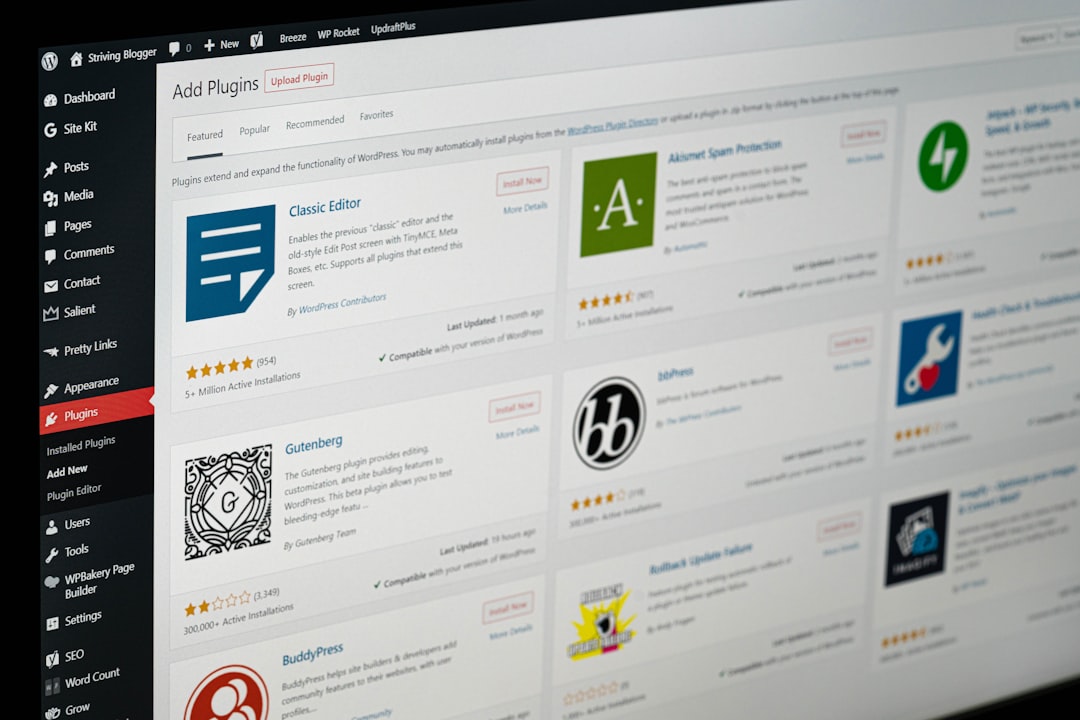In the ever-evolving world of digital marketing, link building remains one of the most important factors for improving a website’s search engine ranking. Search engines like Google analyze the quantity and quality of links pointing to a website to assess its authority, relevance, and trustworthiness. These links act as digital votes of confidence from other websites, signaling that your content is valuable and deserves recognition.
However, not all link building strategies are created equal. To succeed in the highly competitive online environment, businesses must adopt smart and sustainable approaches that align with search engine guidelines. Below are the top 10 link building strategies every website owner should consider to boost visibility and enhance SEO performance.
1. Guest Posting on Reputable Websites
Guest posting involves writing articles for other websites within your niche in exchange for a backlink. Not only does this help drive referral traffic, but it also enhances credibility in your industry. Look for blogs and websites that have strong domain authority and engage with your target audience.
When guest posting, always aim to deliver valuable, original content. Overly promotional or poorly written articles can harm both your reputation and rankings.
2. Broken Link Building
This strategy involves finding broken links on external websites and offering your own content as a replacement. It helps the other site fix their bad links and provides you with an opportunity to earn a backlink.
Use tools like Check My Links or Ahrefs’ Broken Link Checker to identify broken outbound links on websites within your industry. Then, reach out to the webmasters with a polite suggestion and a link to your relevant content.
3. Skyscraper Technique
The Skyscraper Technique is a method where you find high-performing content in your niche, create something even better, and reach out to those who linked to the original material. The goal is to “build higher” and earn even more backlinks.
This is a highly effective strategy but requires effort and exceptional content creation skills. Content should be more comprehensive, better designed, and more up-to-date than the piece you’re competing with.
4. Leveraging Social Media
While social media links are typically no-follow (meaning they don’t directly impact SEO), they can still contribute indirectly. By sharing your content widely, you increase its reach and likelihood of being linked to organically by bloggers, journalists, and influencers.
Focus on creating shareable content such as infographics, guides, and opinion pieces to encourage social engagement and backlinks.
5. Resource Page Link Building
Many websites have dedicated resource pages that list helpful tools, articles, and guides. If your content is relevant, high-quality, and genuinely useful, it stands a good chance of being included in these lists.
Search for these opportunities using queries like “your topic + inurl:resources” or “your niche + useful links.” Once you’ve found a good fit, reach out to the webmaster with a personalized message suggesting your link.
6. Creating Share-Worthy Infographics
Visual content, especially infographics, is highly shareable and has the potential to earn a significant number of backlinks. If designed well, infographics simplify complex information and provide a compelling way to learn key facts quickly.
You can promote your infographic through social media, email outreach, and submissions to infographic directories. Always include an embed code with a backlink when sharing the infographic on your website.

7. Building Relationships with Influencers
Influencers and bloggers in your industry can help amplify your content by linking to it or featuring it in their own work. Building genuine relationships through meaningful engagement offers long-term benefits for link building.
Comment on their content, share their posts, and eventually reach out with pitches that align with their interests. Avoid sounding overly promotional, and always prioritize providing value.
8. Participating in Industry Forums and Communities
Industry forums like Quora, Reddit, and niche discussion boards provide an opportunity to share your knowledge and include backlinks to helpful resources (without spamming).
When participating, make sure your contributions are thoughtful and add to the conversation. Otherwise, your content could be flagged or removed, which might damage your online reputation.
9. Publishing Original Research and Case Studies
Original data and research are highly linkable assets. Other websites frequently cite studies, charts, and case studies when discussing a specific topic. If your website offers one-of-a-kind information, the chances of earning valuable backlinks increase significantly.
This could include surveys, data analysis, or performance reports that show real-world results related to your industry. The more unique and credible your data, the better.
10. Using HARO (Help A Reporter Out)
HARO connects journalists with subject matter experts. By replying to relevant queries with helpful insights, you can earn high-quality backlinks from credible news sites and online publications.
Sign up as a source on HARO and respond to requests that match your expertise. Timeliness, clarity, and credibility are key when crafting responses.
Conclusion
Effective link building is not about shortcuts or manipulation—it’s about creating value and fostering connections within your niche. From guest posting to developing authoritative content like research and infographics, the strategies above offer sustainable methods to strengthen your website’s authority and improve search rankings over time.
Consistency and authenticity are crucial. A single backlink from a high-quality source often outweighs dozens of low-value links. As search engines continue to refine their algorithms, genuine outreach and user-focused content remain your best tools for link building success.
Frequently Asked Questions (FAQ)
-
What is link building in SEO?
Link building refers to the process of acquiring hyperlinks from other websites to your own. It’s a key component of off-page SEO and helps improve your site’s authority and search engine rankings. -
Do backlinks still matter in 2024?
Yes, backlinks remain a crucial ranking factor in SEO. Quality backlinks from reputable sources signal trust and authority to search engines like Google. -
What are the best tools for link building?
Popular tools include Ahrefs, SEMrush, Moz, Majestic, Pitchbox, and BuzzStream. These platforms help find link opportunities, analyze competitors, and manage outreach campaigns. -
Is buying backlinks a good idea?
Buying backlinks is risky and violates Google’s Webmaster Guidelines. It can lead to penalties that negatively impact your website’s visibility. Focus on earning backlinks through high-quality content and genuine outreach. -
How long does it take to see results from link building?
SEO is a long-term strategy, and link building can take weeks or even months to show measurable impacts. Factors like domain authority, content quality, and competition influence how quickly results emerge.


